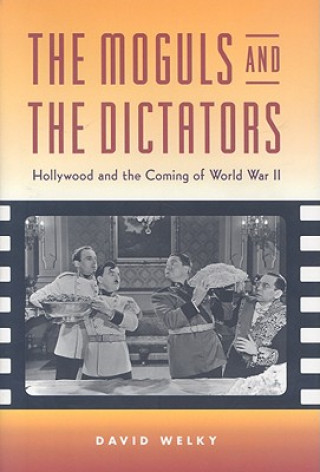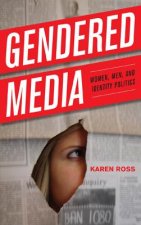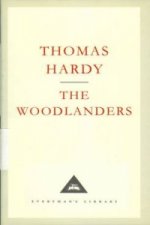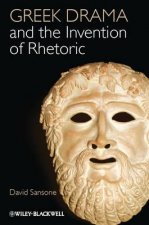
Doručenie
Nákupný poradca





Nehodí sa? Žiadny problém! U nás môžete do 30 dní vrátiť
 Darčekový poukaz
v ľubovoľnej hodnote
Darčekový poukaz
v ľubovoľnej hodnote
S darčekovým poukazom nešliapnete vedľa. Obdarovaný si za darčekový poukaz môže vybrať čokoľvek z našej ponuky.
Moguls and the Dictators
 Angličtina
Angličtina
 164 b
164 b
30 dní na vrátenie tovaru
Mohlo by vás tiež zaujímať


In this fresh look at moviemaking during the Great Depression, David Welky examines Hollywood's response to the rise of fascism and the beginning of the Second World War. Through innovative analysis of hundreds of movies-including The Dawn Patrol, Goodbye, Mr. Chips, and Sergeant York-Welky traces the shifting motivations and arguments of the film industry, politicians, and the public as they negotiated how-or whether-the silver screen should portray Nazism, depict conflict overseas, promote Americanism, and support President Roosevelt's rearmament efforts. Hollywood, Welky argues, was a primary player in the debate between interventionists and isolationists. These competing groups vied for influence and control over the message Hollywood offered the public-either scorning it for being too timid or attacking it for being too aggressive. The national debate reached a fever pitch in September 1941, when isolationists in the U.S. Senate staged widely publicized hearings, accusing the movie industry of warmongering. While prewar Hollywood often reflected the principles of the Roosevelt administration, it also sometimes outpaced the cautious and politically astute president. Providing Americans with the psychological preparation they needed to enter World War II, popular movies familiarized audiences with the wartime experience, offered definitions of patriotism and Americanism, and established the fundamental distinctions between democracy and dictatorship. Welky's depth of research and focused, analytical approach will be appreciated by historians as well as film buffs.
Informácie o knihe
 Angličtina
Angličtina
Kategórie




 Ako nakupovať
Ako nakupovať




























